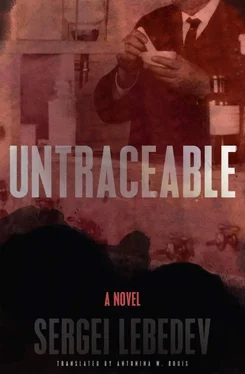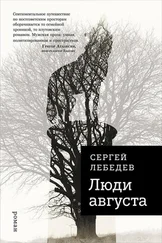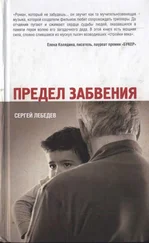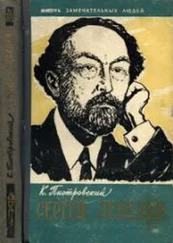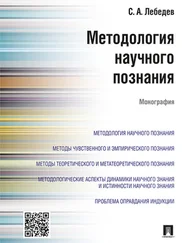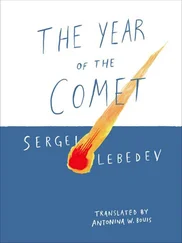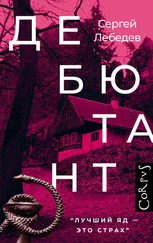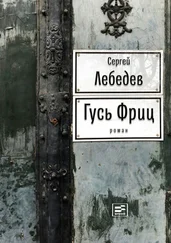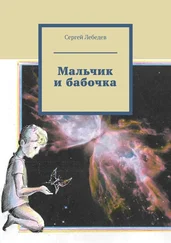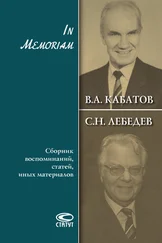Сергей Лебедев - Untraceable
Здесь есть возможность читать онлайн «Сергей Лебедев - Untraceable» весь текст электронной книги совершенно бесплатно (целиком полную версию без сокращений). В некоторых случаях можно слушать аудио, скачать через торрент в формате fb2 и присутствует краткое содержание. Город: New York, Год выпуска: 2021, ISBN: 2021, Издательство: New Vessel Press, Жанр: Современная проза, на английском языке. Описание произведения, (предисловие) а так же отзывы посетителей доступны на портале библиотеки ЛибКат.
- Название:Untraceable
- Автор:
- Издательство:New Vessel Press
- Жанр:
- Год:2021
- Город:New York
- ISBN:978-1-939931-90-0
- Рейтинг книги:3 / 5. Голосов: 1
-
Избранное:Добавить в избранное
- Отзывы:
-
Ваша оценка:
- 60
- 1
- 2
- 3
- 4
- 5
Untraceable: краткое содержание, описание и аннотация
Предлагаем к чтению аннотацию, описание, краткое содержание или предисловие (зависит от того, что написал сам автор книги «Untraceable»). Если вы не нашли необходимую информацию о книге — напишите в комментариях, мы постараемся отыскать её.
Untraceable — читать онлайн бесплатно полную книгу (весь текст) целиком
Ниже представлен текст книги, разбитый по страницам. Система сохранения места последней прочитанной страницы, позволяет с удобством читать онлайн бесплатно книгу «Untraceable», без необходимости каждый раз заново искать на чём Вы остановились. Поставьте закладку, и сможете в любой момент перейти на страницу, на которой закончили чтение.
Интервал:
Закладка:
But at the same time he remembered his own early experiments with monkeys taken from their breeder. Some of the animals were sent to zoos for the public, and some to Kalitin and his many colleagues. One time at the zoo he looked for a sign of knowledge in the grimacing monkey faces that the sorter had spared them from a terrible fate—an experiment with one of his early formulations that was wonderfully absorbable and took immediate effect, but left a clear trace that he couldn’t get rid of.
The animals were given carved wooden objects: spoons, dice, beads, bracelets, alphabet building blocks, pieces of molding, in order to determine how quickly the substance in the wood worked, which types of wood absorbed better, and what shape achieved maximal contact with the skin. Kalitin remembered the wrinkled faces contorted by death. That preparation was accepted and used in production.
Could it be? When he got home, Kalitin read everything he could find about that incident. It all came together. It was his product. An early version he had disdained, but still his child.
The substance was in the right hands. Clearly the special operations group was using it. They must have taken it from the warehouse, as its shelf life, unlike many other products, was unlimited. What if they had reopened the laboratory? Lights burning in the former monastery cells, and someone else sitting at Kalitin’s desk?
Belated and useless hope and the sharpest envy tore Kalitin apart.
For years and years with his special chemist’s eye he observed the behavior of substances, recognized or not by investigators, substances of different chemical classes and families. They left behind scattered, unexplained deaths that were not connected into a general picture, fatal accidents, established assassinations. They were easy to discern for a connoisseur of death masks of journalists, politicians, and defector agents.
He recognized the substances made by competitors and his own. He felt something new and malevolent—a spree, an orgy—that had not existed in the past. Their time has come at last, Kalitin gloated. Whom could they have stopped in the turmoil of the Soviet Union’s collapse in 1991? You can’t poison a crowd. You can’t strike a blow against something without a center. But now, when there is no solidarity, when there are only separate, isolated figures subconsciously paralyzed by fear… the substances were the best choice.
Kalitin knew that his inventions did not simply create specific weapons of death poured into ampoules. He also produced fear. He liked the simple yet paradoxical idea that the best poison is fear. The best poisoning is when people poison themselves. His creations were merely vectors, the sowers of fear. Even the perfect Neophyte. Albeit it was also unique in another of its qualities.
Kalitin painfully regretted not being back on the other side of the border. He knew that they did not forgive people like him. So let them put him in prison, in a secret gulag lab, a sharashka , the way they did with scientists in the thirties and forties, let them sentence him to life in prison, if only he could work, work! But then Kalitin would recall the line in the contract he signed: “disclosure is punishable.” The sentence awaited him like a bride back home. He had strange, turbulent dreams about execution by firing squad: he experienced it as something intimate that reunited him with his homeland, with his laboratory on a distant island, with his old colleagues, with equipment that remembered his hand; the execution did not kill him, it let him be cleansed, reborn, undid his treason.
But the wakeful daytime Kalitin was skeptical of the nocturnal Kalitin’s visions. He thought he knew how to weigh the hurts and the hopes rationally. After all, when he was deciding where to defect, he rejected the stump of Korea created by Stalin, and Communist China, and the states of the Near East.
In part he feared that his homeland had too many eyes and ears there. But more important, he considered himself a man of the first world, not the third. He created methods of killing. But he did not want them used simply because some tribe that had just declared itself a new country hated another tribe. That motive seemed humiliating and unworthy of the scientific truths embodied in his weapons. He had once had a country worth his labors if only because it had enemies of a commensurate scale. That country was gone, so it was better to work for the enemies than for someone in a third, random state on the margins of the original battle.
He had been to the Middle East only once—after the second Iraq campaign. He accompanied a group of inspectors looking for chemical weapons. Kalitin thought that he had already seen and experienced all that: statues pulled down from pedestals, cheering crowds in the streets, corridors of government buildings strewn with documents, bunkers and secret sites abandoned by fleeing guards, test animals dead in their enclosures, microscopes gone blind without electricity, rows of fragile ampoules in soft padded compartments…
Now that Kalitin knew his diagnosis, he remembered something else from that trip: the shadow of forgotten and terrible states of antiquity, divine winged bulls and the Hanging Gardens of Babylon, the shadows of innumerable generations turned to silt and dust, to desert sand, so that the names of their rulers would remain in history; the shadow of dams built by pickax and shovel restraining mighty rivers, bearded faces of stone in the halls of ransacked museums, columns and foundations of destroyed temples—the ghosts whispered in a language Kalitin understood, as if he himself were a ghost, the disembodied remains of the past who could understand others who were gone.
Kalitin also understood that even in his country, which was boundlessly generous in death and in honors, human life had never been valued so low and so high; without intervals. It was only there, beyond the edge of the ancient world, that they could help him: to create an entire medical institute if necessary, gather all the luminaries so that he could live, Kalitin, the creator of untraceable death.
When his doctor came in, Kalitin understood just by the look on his face. He was too professionally compassionate. He listened attentively to the doctor’s sympathetic, encouraging words, but inside he ran through the names of countries as if they were the names of lifesaving medications the doctor did not know.
He made his decision.
CHAPTER 6
Shershnev enjoyed being involved with the operations. Everything that came before—setting the task, the instructions—was the obligatory prelude to the moment when he opened the file and was left one-on-one with the subject.
First of all, that’s what officers in his unit were taught: operations management and extreme action. The Spetsnaz skills, the interrogation tactics—that was additional training. During the domestic war their unit was not used for its intended purpose, they were thrown in as reinforcements, and Shershnev was happy to get back to their original tasks, to the familiar style of action.
Some men, Shershnev knew, experienced the pathetic pleasure of peeping schoolboys when they read operative materials. Yes, he admitted, their work, especially surveillance, was in part like voyeurism. He once studied the case of a bohemian artist, womanizer and libertine, who as if to mock them, picked up a new girl every week, took her out to dinner or a movie and then brought her home, and they had to work up a file on each lover, find out who she was and whether she was in their files. By the time the report came back, the artist was sleeping with a new one, and they had to start over. It seemed the colossal operations mechanism was spinning its wheels, the surveillance cars wasted time and gas, the tape recorders captured the same scores of romantic arias, the cameras photographed the same scenes: on the porch of a restaurant, on the street, at the car door. But Shershnev was certain that it was not so. It was their work’s irrational redundancy, the ability to randomly expend resources, to the point of ridiculous excess—attempting to keep tabs on every moment and person, as with the libertine artist—that constituted the ritual foundation of their service. Regardless of the result, or whether the agent reports were informative—the surveillance and documentation would continue, because sifting through dust is the manifestation of total power; whoever falls under their purview, their gaze, whoever becomes part of a case becomes significant, exists, is transformed from a nullity, from no one, into the subject.
Читать дальшеИнтервал:
Закладка:
Похожие книги на «Untraceable»
Представляем Вашему вниманию похожие книги на «Untraceable» списком для выбора. Мы отобрали схожую по названию и смыслу литературу в надежде предоставить читателям больше вариантов отыскать новые, интересные, ещё непрочитанные произведения.
Обсуждение, отзывы о книге «Untraceable» и просто собственные мнения читателей. Оставьте ваши комментарии, напишите, что Вы думаете о произведении, его смысле или главных героях. Укажите что конкретно понравилось, а что нет, и почему Вы так считаете.
